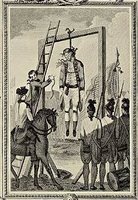Serious about secrecy? Sign this Revolutionary War oath
 With all the counterterrorism secrets leaking out of Congress and the executive branch, it's time to look at how the Founding Fathers would have dealt with the problem.
With all the counterterrorism secrets leaking out of Congress and the executive branch, it's time to look at how the Founding Fathers would have dealt with the problem.Our country's founders took secrecy so seriously that all lawmakers had to sign a pledge with teeth so sharp that a leaker would be expelled from Congress and treated as an "enemy."
The Second Continental Congress adopted the following "Resolution of Secrecy" early in the Revolutionary War. Today's Congress should enact a similar resolution for its members:
RESOLUTION OF SECRECY ADOPTED BY THE CONTINENTAL CONGRESS, NOVEMBER 9, 1775
Resolved, That every member of this Congress considers himself under the ties of virtue, honour, and love of his country, not to divulge, directly or indirectly, any matter or thing agitated or debated in Congress, before the same shall have been determined, without leave of the Congress; nor any matter or thing determined in Congress, which a majority of the Congress shall order to be kept secret. And if any member shall violate this agreement, he shall be expelled [from] this Congress, and deemed an enemy to the liberties of America, and liable to be treated as such; and that every member signify his consent to this agreement by signing the same.
Source: Documents Illustrative of the Formation of the Union of the American States (Washington: Government Printing Office, 1927), p. 18, Quoted from Secret Journals of the Acts and Proceedings of U.S. Congress, Vol. I, p. 34.
We were at war at the time, and we treated enemies with a bit of rope and a stout oak tree. It's time to get back to our founding principles.





